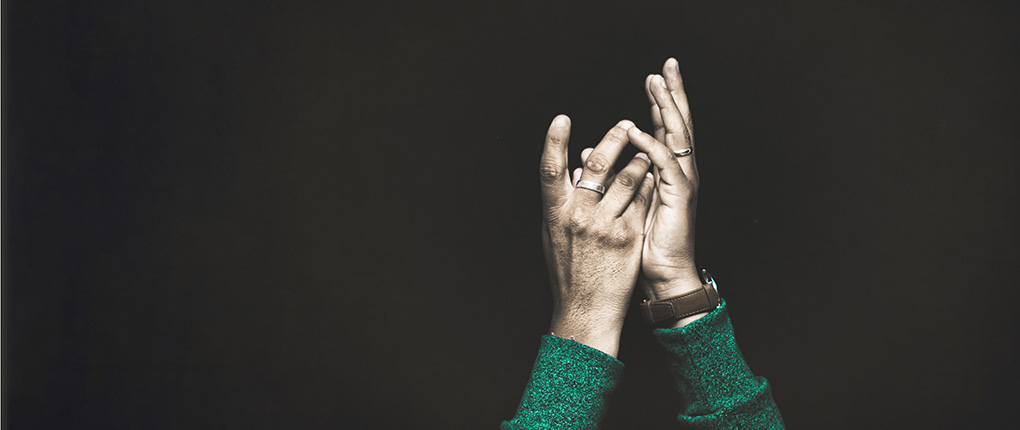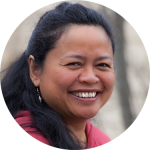
Like many in Christchurch’s Indonesian community, associate staff worker Ani Kartikasari lost a friend on March 15. In the days that followed the massacre, the lecturer at Lincoln University supported students, victims and their families as they came to terms with the extent of the tragedy. Ani’s place in various communities opened up many opportunities to serve her neighbours. She shares her own experience of those days; the names of her friends have been changed.
The Grounded Café, a new student hang-out at Lincoln University, was quiet shortly after 2pm on that Friday. I was in the middle of a discussion with three international postgrads who were struggling with their assignment when the alarm went off. I tried to figure out if it was a fire alarm or a lockdown. The lights in the library opposite were switched off, so I told the students to get under the table.
Soon after, police officers came and told the 30 or so of us in the café to stay put until further notice. The alarm continued for more than 15 minutes—deafening and causing worries. We whispered speculations to each other. Then one of the students told us about the live stream on Facebook showing the shooting that was happening at the Dean Avenue mosque. They became even more scared. I heard people sob as they huddled together and tried to comfort each other, and those who had cell phones watched the news updates. The atmosphere of fear, bewilderment and disbelief was palpable. The hour that passed seemed like an eternity.
Around 4pm, we were allowed to leave. My phone was dead, so when I got back to my office I plugged it in and found a text from my son, Jon. He had been working in a lab in another building. He said, “We need to get out and go home asap. Where are you Mum, why are you not answering my texts?” Soon afterward he appeared in my office. His face was worried but he was relieved that I was okay.
As we drove home, I knew that the days ahead would be hard. The shock and distress that the students and staff felt would require enormous energy on my part as a chaplain. The effects of the earthquakes in 2010 and 2011 came to mind. Then I thought about my Indonesian community, as many of them are devout Muslims. I texted some of them, but no reply. I checked my Facebook news stream (something I hardly do!) and saw a message: the whereabouts of my friend Rina’s husband Hasan was not known.
It was a hard evening. Even cooking a simple meal seemed incongruous. I felt grateful that my son, who lives with me, my older son who is flatting in the city, and my ex-husband were safe. After the 6pm news was over, I drove to Rina’s place. Several Indonesian friends were there already. Rina was still in shock. She was almost sure that her husband was at the mosque as he is every Friday. Others had checked at Christchurch Hospital but he was not on the list.
Around 9pm we got hold of one of the six Indonesian students who were at the main mosque and escaped uninjured. Idrus, a PhD student, confirmed that Hasan was at the mosque, two rows in front of them. Rina’s hope diminished. We waited for the news from the police until midnight. Friends started to say words of comfort and encouragement. Rina was numb.
Rina and Hasan arrived in Christchurch in 2003, a few months before my young family did. They were the first Indonesian family I met, when they held a gathering at their home. They were generous in their hospitality, their home a gathering place for the Indonesian community. As I became more involved with the community, Hasan and I were regarded as community leaders and surrogate parents to many young Indonesians, particularly students. Rina’s culinary skills and generosity meant that no one ever left their house without being fed yummy Indonesian food. They have an open home each Eid at the end of a month of fasting, where around 100 people come throughout the day to share a feast.
On Sunday night, the police confirmed Hasan’s death. I lost a friend I deeply respect, and many Indonesians felt a big hole in their hearts. Rina’s world crumbled, and that of their two young adult children.
On Saturday morning, I had received a phone call from the Indonesian Embassy, asking if I could visit an Indonesian man and his 2-year-old son who were badly injured in the Linwood shooting. I texted the wife to check if it was okay to visit them in the hospital.
It was strange to see police officers with guns around the hospital entrance. I went through a polite but thorough check before I was allowed in. It was a surprisingly easy entry to the conversation with Marin and her son, who immediately warmed up to me as I sang Indonesian children’s songs and spoke to him in Indonesian. She told me that her family just arrived in the city six weeks earlier, so they were not yet connected with other Indonesians. What I thought was going to be an hour visit ended up a whole day of listening to her crushed dream of raising a family in this beautiful city, her fear of the impacts on both her husband and son. Another family’s world crumbled in front of me.
I felt helpless but was able to glean practical strategies to help, like organising babysitting rosters so Marin could sleep. I was so encouraged when my church family responded willingly. I also organised fundraising among my circle of friends as she is the breadwinner but can’t work while her husband and son are recovering.
In the following days, I was shocked to hear from Marin the pressure she was under from the media wanting her family’s story. She was strong with boundaries, but it was draining for her. I became a surrogate aunty; what a privilege.
As I left the hospital during that first visit, I saw an email from work stating that an international student who had recently defended his PhD was one of the victims who died. I know him, his wife, Qory, and two young children well. We often chatted about overcoming challenges of studying and raising children on a student budget. I called Qory, who still had not heard from the police. I visited her family on Sunday at lunchtime; still no news. I was able to talk to other students from the same country and we identified immediate needs to meet. I forwarded them to the university leadership team. The final dreaded news came late that night.
By this time, we knew four international students who had died.
Back at uni on Monday, I realised that one of the victims was in my class in 2018. The classmates, some of whom are in my class this semester, were shocked and fearful. That week’s assignments were cancelled. Meetings with student support and services staff were held to ensure not just immediate families of victims received quick and appropriate support but also students and staff who know the victims. It was lovely to see the Christian groups on campus offering to be around the Musalla every Friday at midday prayer time in a show of support for a grieving community.
I did not have time to grieve the three victims I knew personally during those intense days. The emotional and mental exhaustion hit after the bodies were buried. I learned to withdraw regularly to seek God’s direction as to what was most important because I could not do everything that came my way. God always has amazing ways to show how much he cares, is able and available.
In the midst of the chaos, I saw many opportunities for everyone, individually and collectively, to show love and compassion in practical ways: offering food, rides, listening ears, friendship, financial support, quick assistance, and filling in various forms for families to get help.
The whole shocking event begs me to answer this question: How much do I know my “neighbour,” and do I love them as Jesus commands me to?
Ani pioneered TSCF’s work with postgraduate students at Lincoln University in 2010. She is a lecturer there in International Rural Development.





